Removal Procedure
- Inspect the fluid level in the brake master cylinder reservoir.
- If the brake fluid level is midway between the maximum-full point and the minimum allowable level, no brake fluid needs to be removed from the reservoir before proceeding.
- If the brake fluid level is higher than midway between the maximum-full point and the minimum allowable level, remove brake fluid to the midway point before proceeding.
- Raise and suitably support the vehicle. Refer to Lifting and Jacking the Vehicle in General Information.
- Remove the tire and wheel assembly. Refer to Tire and Wheel Removal and Installation in Tires and Wheels.
- Install and hand tighten a wheel lug nut in order to retain the rotor (A4WD only).
- Compress the front caliper piston.
- Remove the brake hose-to-caliper bolt (1) from the caliper.
- Plug the opening in the front brake hose (2) in order to prevent excessive brake fluid loss and contamination.
- Remove the caliper mounting bolts.
- Remove the caliper.
- Remove the brake pads. Refer to Brake Pads Replacement .
- Remove the bushings.
- Remove the sleeves (RWD only).
- Inspect the caliper bolts for corrosion or damage. Do not attempt to polish away any corrosion. If corrosion is found, use new parts, including bushings, when installing the caliper.
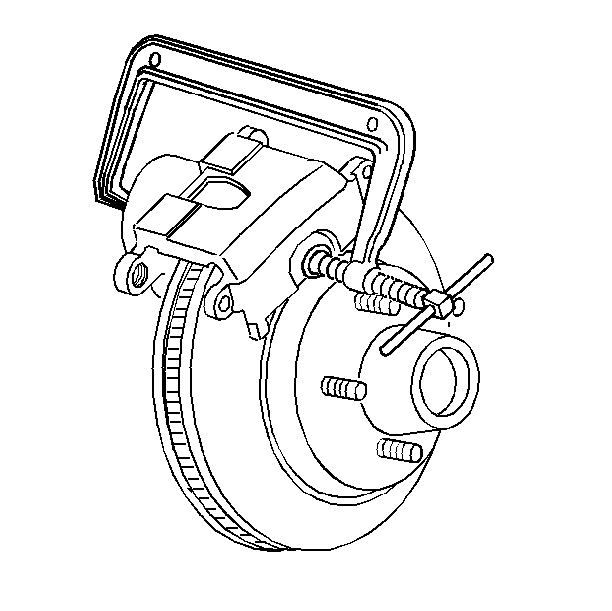
| • | Install a large C-clamp over the top of the caliper housing and against the back of the outboard pad. |
| • | Slowly tighten the C-clamp until the piston pushes into the caliper bore enough to slide the caliper off the rotor. |
| • | Remove the C-clamp from the caliper. |
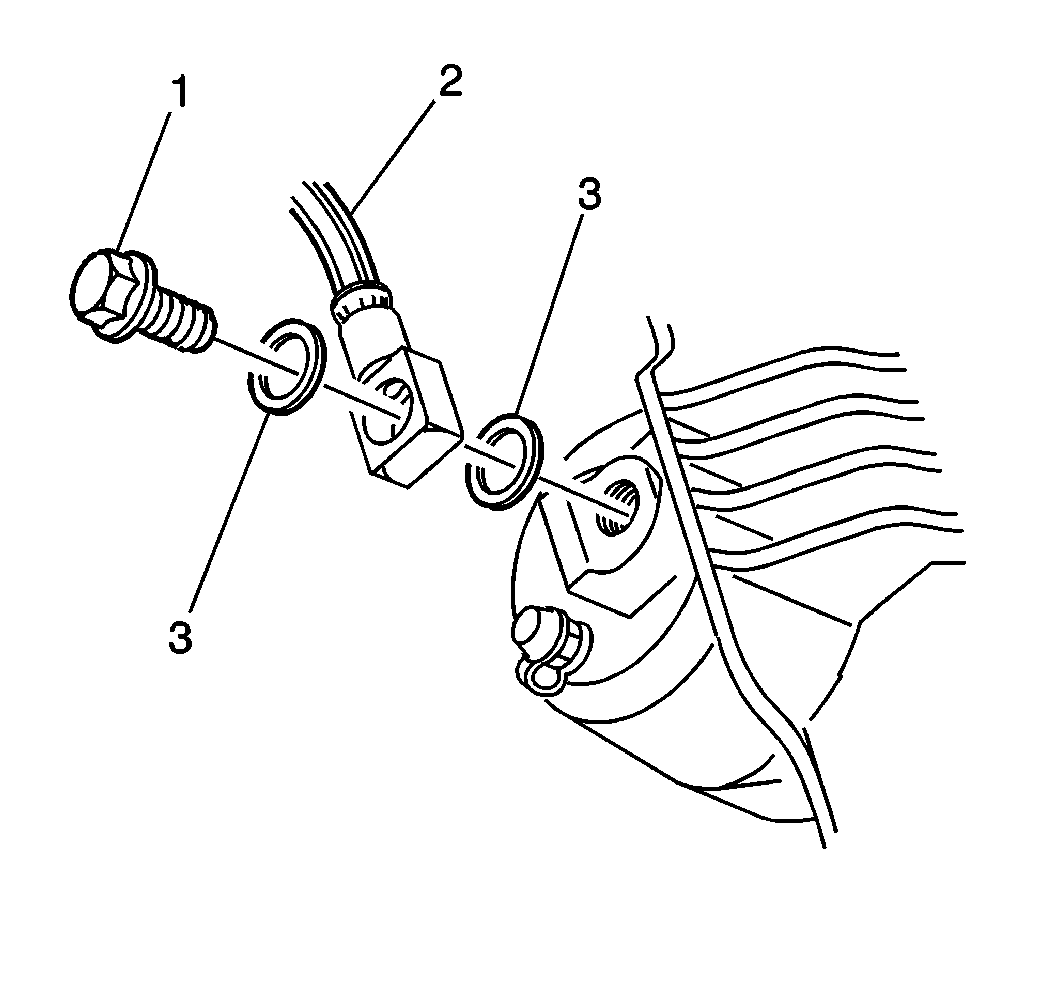
Discard the 2 copper gaskets (3). These gaskets may be stuck to the brake caliper and/or the brake hose end.
Do not pinch off the brake hose with any tools.
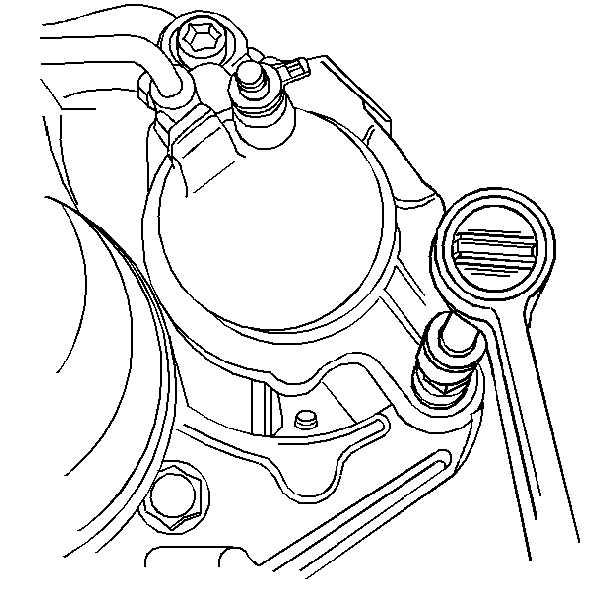
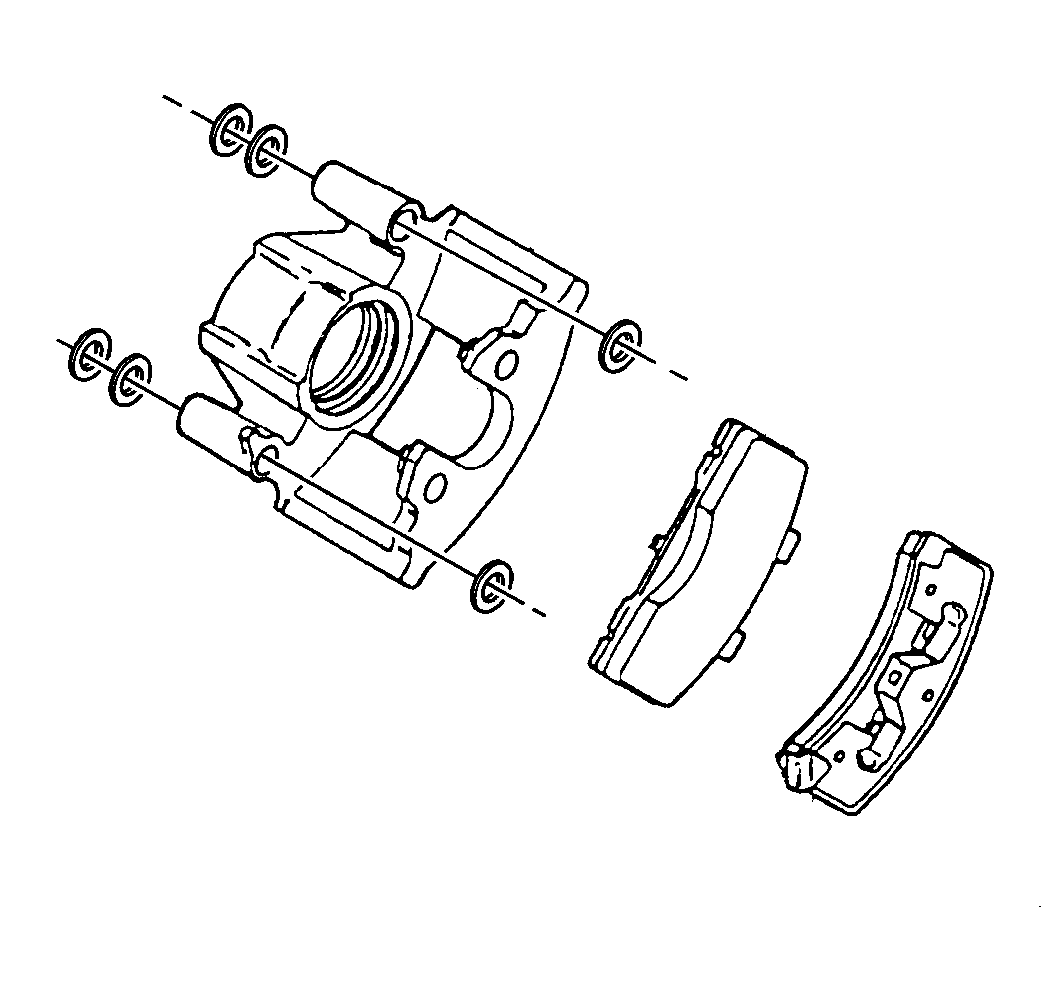
Installation Procedure
- If reusing the brake caliper pin bolts and retainers, clean the brake caliper pin bolts and retainers using denatured acohol, or equivalent.
- Dry the brake caliper pin bolts using non-lubricated, filtered air.
- Apply high temperature silicone brake lubricant to the brake caliper pin bolts and retainers. DO NOT apply lubricant to the brake pad hardware.
- Install the bushings.
- Install the sleeves (RWD only).
- Install the brake pads. Refer to Brake Pads Replacement .
- Install the caliper assembly.
- Install the mounting bolts.
- Install the brake hose bolt (1) and the NEW copper brake hose gaskets (3) to the brake hose (2).
- Install the brake hose-to-caliper bolt to the brake caliper.
- Remove the wheel lug nut securing the rotor to the hub.
- Measure the clearance between the caliper and the steering knuckle.
- Install the tire and wheel. Refer to Tire and Wheel Removal and Installation in Tires and Wheels.
- Lower the vehicle.
- Fill the master cylinder to the proper level with clean brake fluid. Refer to Master Cylinder Reservoir Filling in Hydraulic Brakes.
- Bleed the brake system. Refer to Hydraulic Brake System Bleeding in Hydraulic Brakes.
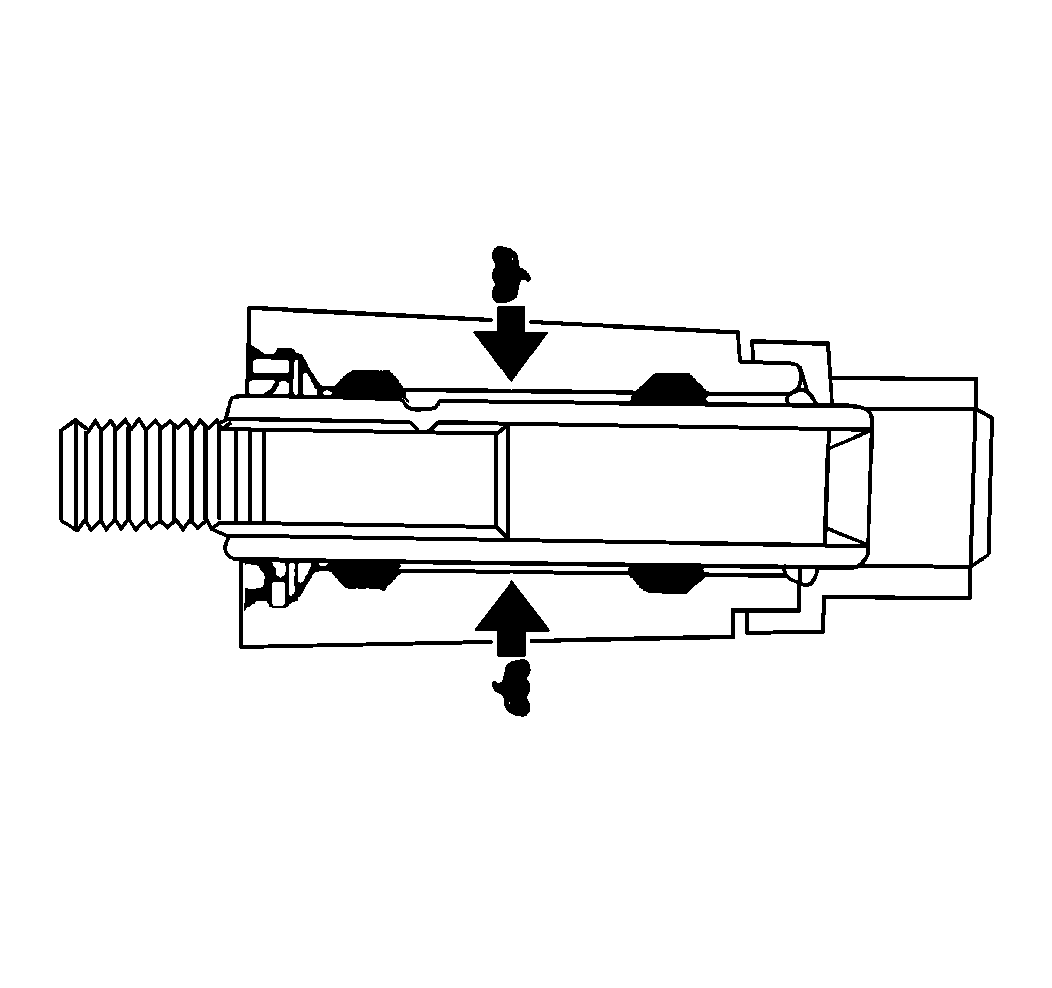


Notice: Use the correct fastener in the correct location. Replacement fasteners must be the correct part number for that application. Fasteners requiring replacement or fasteners requiring the use of thread locking compound or sealant are identified in the service procedure. Do not use paints, lubricants, or corrosion inhibitors on fasteners or fastener joint surfaces unless specified. These coatings affect fastener torque and joint clamping force and may damage the fastener. Use the correct tightening sequence and specifications when installing fasteners in order to avoid damage to parts and systems.
Tighten
Tighten the bolts to 51 N·m (38 lb ft).

Important: Install NEW copper brake hose gaskets.
Tighten
Tighten the bolt to 44 N·m (32 lb ft).
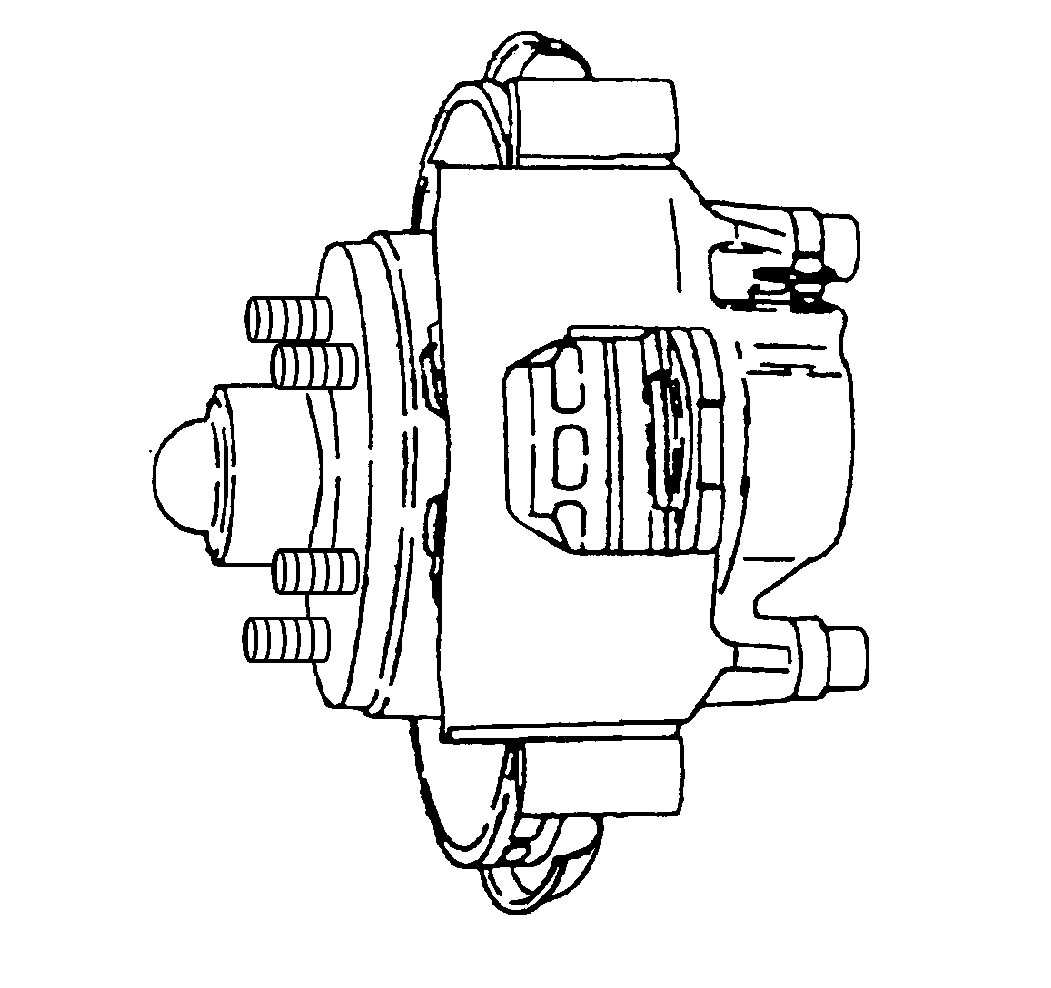
Measure the clearance at each end of the caliper individually and then add the measurements together.
Specification
The total should be 0.26-0.60 mm (0.010-0.024 in).
| • | If the total clearance between the caliper and the steering knuckle is less than 0.26 mm (0.010 in), file the steering knuckle equally on each side until the proper clearance is obtained. |
| • | If the total clearance between the caliper and the steering knuckle is more than 0.60 mm (0.024 in), inspect the brake caliper and the steering knuckle for damage and replace as needed. |
